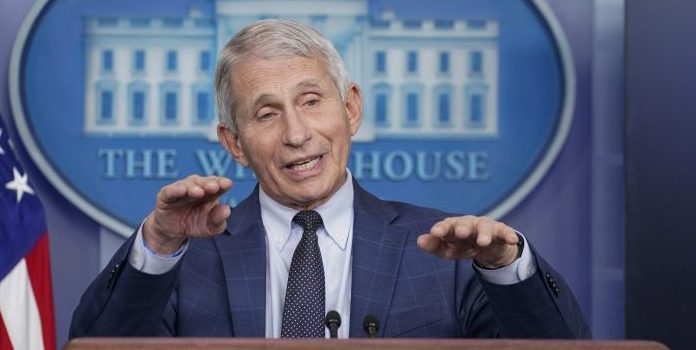(Molly Bruns, Headline USA) Politicians and bureaucratic officials responsible for the tyrannical COVID lockdowns are now denying their involvement in the process altogether as they realize that the decision to shut down the country for nearly two years was a vastly unpopular one.
According to the Daily Caller, ex-COVID czar Anthony Fauci and Randi Weingarten, president of the American Federation of Teachers, are making desperate attempts to gaslight Americans and save whatever is left of their crumbling reputations.
Weingarten worked to keep schools shut down for as long as possible while still granting benefits and pay to teachers. However, in a recent hearing on the impact of school closures, she insisted that she fought to keep schools open.
AFT President Randi Weingarten: "We spent every day from February on trying to get schools open. We knew that remote education was not a substitute for opening schools." pic.twitter.com/1qNL05VD3u
— Washington Free Beacon (@FreeBeacon) April 26, 2023
“We spent every day from February on trying to get schools open,” she claimed. “We knew that remote education was not a substitute for opening schools.”
This is a blatant lie. Throughout the pandemic, Weingarten decried attempts to reopen schools, at one point even calling it “reckless, callous, [and] cruel” to try and bring kids back in.
However, Weingarten is correct about the latter point—the pandemic, among other factors, resulted in catastrophic learning loss for school-age kids.
Fauci, who served as top coronavirus advisor to former President Donald Trump and President Joe Biden, forced masking and vaccinations as mandatory measures against the virus.
But in an interview last week with the New York Times, he claimed that he had no influence over the lockdowns.
“Show me a school that I shut down and show me a factory that I shut down,” he said. “Never. I never did.”
Though Fauci did not have the literal power to shut things down, government officials relied on his decisions for guidance. He acknowledged this in the interview.
“I gave a public-health recommendation that echoed the CDC’s recommendation, and people made a decision based on that,” he explained, casting the blame on everyone else.
“So we looked at it from a purely public-health standpoint,” he added. “It was for other people to make broader assessments—people whose positions include but aren’t exclusively about public health.”

